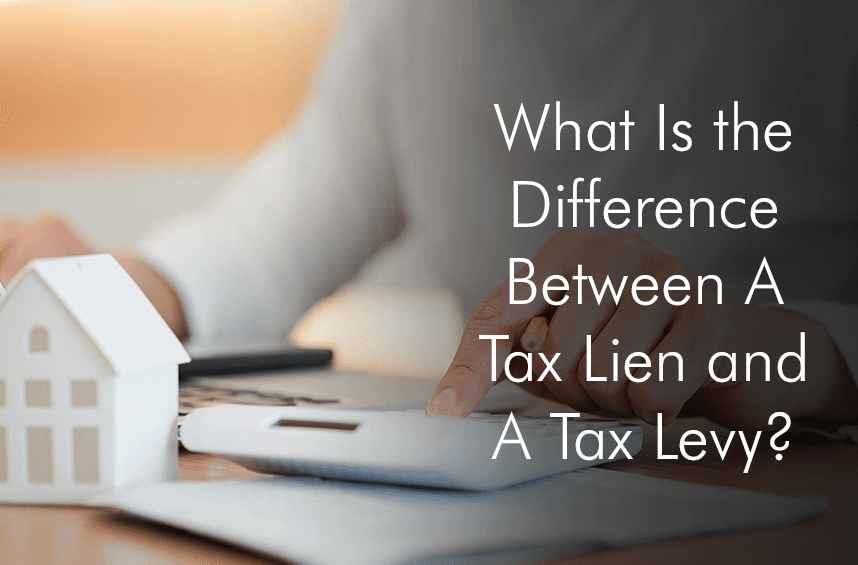All Categories
Featured
Table of Contents
It is essential to keep in mind that not every state offers financiers the chance to participate in a tax lien sale. In some states, a residential property with delinquent tax obligations will go right to the tax sale procedure. In the states that do provide real estate capitalists the possibility to purchase tax liens, around 33 percent of the $14 billion in unsettled taxes were sold (in 2017, as an instance).
If you want the tax lien foreclosure procedure, you ought to call an attorney so you recognize and evaluate the threats of this sort of financial investment.
How To Do Tax Lien Investing
Tax obligation lien sales are one means that cities and areas attempt to redeem a few of the public bucks they've spent preserving these residential properties abandoned by personal proprietors. As we'll discuss in this article,. As soon as home tax obligations are taken into consideration overdue, regional governments typically concentrate on offering notice of misbehavior and trying to collect the overdue amounts from the owner.
However, this procedure normally takes years. If a proprietor has actually walked away and is reluctant to pay taxes or keep the home, the city has to invest tax obligation dollars to preserve the residential property. These costsboarding up the structure, trimming thick yard and weeds, reacting to fire and authorities gets in touch with the building, and moreadd up.
Proprietors who have fallen on tough times absolutely require every effort to keep them out of delinquency and in their homes. tax lien investing in texas. Normally, if the property is vacant and tatty, we must think the proprietor has actually chosen to desert their passion in the residential or commercial property and that they are "unwilling" to pay (though situations earlier in the process may have forced their hand).

Take, for instance, a single-family home where the owner has actually time out of mind left. For years the city government has needed to step in and eliminate garbage dumped in the backyard, board up the doors and home windows, and reply to telephone calls about immoral activity on the residential or commercial property. All these solutions cost the local government taxpayer bucks.
In numerous states, those expenses can be accumulated in the very same fashion as the overdue tax obligations, however not in all. (Something that Area Progression highly advocates in favor of.) Eventually, the total financial debt comes to be higher than what the residential property can sell for. In a tax lien sale (or tax certification sale) the local government normally holds a public auction where the winning bidder accepts pay the most money for the right to implement the tax lien, beginning with a minimal quote of at the very least the taxes owned, plus suitable rate of interest, charges, and expenses.
When a federal government offers the tax obligation lien they are typically offering to a personal buyer the regional federal government's authority to collect the debt for ahead of time settlement of the taxes owed. The customer's purchase usually includes the capability to earn future interest, in addition to recoup related costs and expenses sustained by the customer, if the property owner pays the tax obligation financial obligation.
How To Tax Lien Investing
This is, essentially, privatization of a core federal government function: taxation. Tax lien sales are particularly poor when it pertains to uninhabited, abandoned, and deteriorated buildings due to the fact that they lengthen the period prior to a property can be relocated into the hands of a brand-new, more liable owner. Exclusive tax lien buyers hold the debt, yet they do not own the titlethe lawful right to ownership of the propertyand in several instances, they have no passion in obtaining it.

Thinking about budget cuts, city governments in many states have decreased internal real estate tax collection and enforcement efforts and looked to tax lien sales as a quick infusion of earnings. Many areas select or are mandated by the state to market tax obligation liens because it outsources collection and frequently brings in very required money earlier in the collection process.
By transferring the city government's rate of interest in and enforcement of the tax lien to an exclusive buyer, regional federal governments lose a lot of their versatility: adaptability to obtain uninhabited buildings that the personal market does not desire, or to aid the proprietor avoid shedding their home. With vacant homes, there is a much greater chance that the exclusive purchaser isn't curious about the home itself.
Tax obligation lien sales can cause injury in traditionally disinvested areas (investing tax lien). In a clinically depressed real estate market, fewer proprietors have the ability to retrieve the quantity of the financial obligation offered to a tax obligation lien buyer - investing tax lien certificates. These areas are ripe for a various kind of tax obligation lien investorspeculative proprietors seeking to get homes on the low-cost by foreclosing on the real estate tax lien, bleeding what bit equity is left by renting out a low-grade building to vulnerable lessees, and then deserting the property when they've earned back their investment

Not all state laws give local federal governments the power to intervene in this cycle. Either method, the residential or commercial property stays uninhabited and in limbo, all the while imposing significant expenses on its neighbors and taxpayers. It's understandable that several city governments transform to tax lien sales because they aid fund important public solutions.
Tax Lien Investing Secrets
If the neighborhood federal government instead sells the property (also known as the "tax obligation action"), rather than the tax financial debt, then they are in control of what takes place to the residential or commercial property and the enforcement procedure if the owner remains to not pay the real estate tax owed. The federal government will supply the proprietor a reasonable time to pay back the tax debt, after which the government will certainly confiscate its rate of interest in the tax obligation lien and the owner's right of redemption.
From their beginning, these auctions were locations for investors to benefit via exploitation. investing in tax liens and deeds. In early 20th-century cities, notorious "tax obligation sharks" like Chicago's Jacob Glos and New york city's Charles Wiltsie collected lot of money by purchasing up scores of tax liens on houses, charging their owners inflated total up to eliminate the lien, or waiting up until the target date for settlement passed and declaring the action
Phone call to abolish tax lien sales and overhaul tax misbehavior legislations have actually regularly appeared. Frequently, they have come in action to cases of bad, usually elderly property owners who shed their homes to unethical tax customers over little tax financial debts. risks of investing in tax liens. With a few exemptions, state legislatures have withstood structural reforms.
Those that have repaid their home loans (primarily seniors or individuals who had actually inherited a family members home) need to likewise find the cash to pay residential property tax obligations. This discusses why 70 percent of the homes marketed at tax obligation lien sales are had outright. It is well hobby for states to embrace an even more humaneand extra effectivesystem for real estate tax enforcement.
Latest Posts
Back Taxes Foreclosure Homes
Tax Lien Investing Florida
Tax Foreclosure Homes